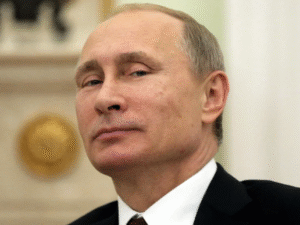$SNP $OIL $RSX
#Sinopec #RussianOil #Sanctions #CrudeOil #EnergyMarkets #USsanctions #OilTrade #GlobalEconomy #EnergySecurity #CommoditiesTrading #GeopoliticalRisk #SupplyChain
In a significant development that signals a shift in the global oil trade dynamics, Sinopec, China’s state-controlled refining behemoth, has resumed purchasing Russian crude oil after a brief hiatus. This move comes after the company stopped its purchases due to mounting concerns over the U.S. sanctions imposed on Russia’s oil trade and its shadow tanker fleet in January. Sinopec, recognized as the largest refiner in Asia by processing capacity, strategically navigated through the complexities of international sanctions to secure its first ESPO blend from Russia for May loading. This decision was reached after abstaining from procurement of the mentioned grade for March and April loadings, a period during which the company meticulously evaluated the risks associated with the U.S. sanctions.
The implications of Sinopec’s resumption of Russian crude oil purchases are multifaceted, encompassing geopolitical, economic, and energy market dimensions. From a geopolitical standpoint, this move underscores the intricate dance between adhering to international sanctions and pursuing national energy security priorities. For Sinopec, securing a reliable and cost-effective supply of crude oil is paramount, especially against the backdrop of fluctuating global oil prices and the ongoing volatility in energy markets. The company’s ability to reassess and adapt its purchasing strategy reflects a nimble and strategic response to the evolving geopolitical landscape, where energy supplies are increasingly weaponized.
Economically, Sinopec’s resumed trade with Russia carries significant implications for the global oil market. Amidst the sanctions, Russian crude has traded at a discount, presenting a lucrative opportunity for buyers like Sinopec to capitalize on lower prices. This dynamic could potentially alter the balance in the global crude oil market, affecting prices and trade flows. Additionally, the move could signal to other countries and companies the feasibility of engaging with Russian crude, provided they can navigate the sanctions framework, thereby influencing the global economic sanctions regime against Russia.
Furthermore, the resumption of purchases by Sinopec is a critical development within the broader context of global energy security and commodity trading. It highlights the ongoing challenges faced by major economies in securing energy supplies in a sanctions-constrained environment. For countries and companies operating in the global energy market, the situation underscores the importance of flexibility and strategic foresight in supply chain management. As trade flows adjust in response to geopolitical events and sanctions, the patterns of global energy trade are likely to undergo significant shifts, with long-term implications for energy security, market stability, and international relations.
In conclusion, Sinopec’s decision to resume Russian crude oil purchases after a brief pause due to concerns about U.S. sanctions illustrates the complex interplay between geopolitics, economics, and energy security. This development not only affects the immediate stakeholders but also has broader implications for the global oil market, international trade regulations, and geopolitically-driven supply chain strategies. As the situation evolves, the decisions of major players like Sinopec will continue to shape the landscape of global energy trade, underscoring the intricate balance between adhering to international norms and securing national interests in an increasingly volatile world.







Comments are closed.